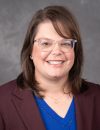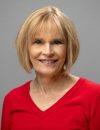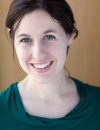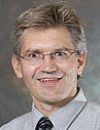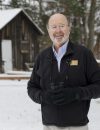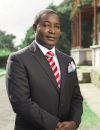UW-Madison researchers and the vaccine companies FluGen and Bharat Biotech are developing and testing a vaccine against COVID-19 called CoroFlu, they announced Thursday.
UW In The News
-
Social-Distancing Rules—and Those That Flout Them—Spur Online Shaming
Quoted: And for this generation of teens, there is little precedent for this kind of threat. Most were born after the Sept. 11, 2001, terrorist attacks and haven’t experienced the type of disruption that would make them fearful of going about their regular lives, said Bradford Brown, a professor of human development at the University of Wisconsin in Madison who specializes in adolescents.
-
Voting by Mail Could Be What States Need. But Can They Pull It Off?
Quoted: In the 2016 presidential election, voters there cast some 145,000 absentee votes by mail; in Tuesday’s election, there were over a million. The state’s election officials regularly process high volumes of absentee ballots, but the last-minute cascade left them swamped, said Kenneth Mayer, a political science professor at the University of Wisconsin.
-
For Caregivers Of Children With Autism, COVID-19 Conditions Can Present Extra Challenges
Quoted: Sigan Hartley is a University of Wisconsin-Madison associate professor of human development and family studies and the 100 Women Chair for the School of Human Ecology. She’s also a Waisman Center investigator, whose research focuses on positive well-being in individuals with developmental disabilities and their family members.
-
Wisconsin Clerks Guarding Ballots for Days Before Counting
Quoted: Barry Burden, a political science professor at the University of Wisconsin-Madison, called tampering a minor concern for clerks who already had processes for securing absentee ballots before election day.
-
The trouble with predicting how the coronavirus will spread.
Quote: As governments around the world try to predict the toll and duration of the coronavirus, they’re turning increasingly to a handful of forecasting models for answers. But many of the leading models differ drastically in their approach and methods. What do we need to know about these forecasts? And what are their limitations?Guest: Jordan Ellenberg, mathematics professor at the University of Wisconsin-Madiso
-
State Officials Developing Guidelines For Scarce Medical Equipment
Quoted: Dr. Norman Fost, a professor emeritus of pediatrics and bioethics at the University of Wisconsin-Madison School of Medicine and Public Health, leads the Ventilator Allocation Advisory Workgroup. He said there was general agreement on having uniform guidelines within the state.
-
Covid-19 documentary to shed light on pandemic
Quoted: “The virus, people say sometimes, is a piece of bad news wrapped in protein. It is a vector for getting genetic information into a cell and that genetic information just contains a blueprint to make more viruses. They were able to tell that although this virus was new, it was closely related to the original SARS virus,” explained Professor Thomas Friedrich from University of Wisconsin-Madison.
-
Trump Hates Having Too Many Voters
Quoted: Except for the part where he had actually endorsed said judge in January. “And there were no polls,” added Barry Burden, the director of the University of Wisconsin Elections Research Center.
-
How to Avoid Misinformation About COVID-19
If you’ve found yourself unsure whether a soundbite or headline you saw or shared was true, know that you’re not alone, says Dietram Scheufele, a professor at the University of Wisconsin-Madison who studies science and political communication.
-
How Wisconsin’s election disenfranchised voters in the coronavirus pandemic
“As the weeks wore on, the legislature dug into that position, allowing no accommodations, no flexibility for voters, and the governor slowly moved to the opposite side,” University of Wisconsin-Madison political science professor Barry Burden told Vox.
-
Joe Biden, Bernie Sanders and No Decision in Wisconsin, Yet
Quoted: “There will be lingering concerns no matter how the election is run,” says Barry Burden, a political science professor at the University of Wisconsin-Madison. “It’s just not possible to run an ideal election in a public health pandemic. Who’s complaining about it will vary depending on what is done.”
-
Bharat Biotech: Hope to get nasal vaccine against Covid-19 into market in 12-18 months: Hyderabad-based Bharat Biotech
Q When did you start work on a new vaccine and what is the status of the research?
A. We began work on the new vaccine, CoroFlu, in February this year. CoroFlu builds on cutting-edge technology from an influenza vaccine already being developed by US company FluGen, and based on research at the University of Wisconsin, Madison (UWM). Because CoroFlu is based on a flu vaccine, our team hopes to protect patients from both the flu virus and the novel coronavirus at the same time.
-
3D printing faces hurdles in coronavirus response
Quoted: Tim Osswald, a professor of mechanical engineering at the University of Wisconsin-Madison and an expert on the technology, told The Hill that 3D printing speeds up manufacturing much more than traditional production methods.
-
Wisconsin is scheduled to vote today. How will the pandemic affect turnout?
On Tuesday, April 7, Wisconsin is scheduled to vote. With the coronavirus still raging, state lawmakers of both parties have for weeks been urging voters to cast ballots early or absentee to help contain the pandemic.
-Michael Wagner, Katerine Cramer, Dhavan Shah, Lewis Friedland
-
Cafeteria workers are risking their health to feed vulnerable students
The pandemic has shown us just how important “lunch ladies” are, and we owe it to them to remember this lesson when school is back in session.
-Jennifer Gaddis is an assistant professor in the Department of Civil Society & Community Studies at the University of Wisconsin-Madison and the author of The Labor of Lunch: Why We Need Real Food and Real Jobs in American Public Schools.
-
When stress hits you like a slap in the face, how do you respond?
“Build in cues to remind yourself to be intentional about practicing mindfulness,” said Richard Davidson, director of the Center for Healthy Minds at the University of Wisconsin-Madison. Examples include glancing at a photo of loved ones on your desk or sticking an inspiring phrase (“I’ve got this!”) on your computer monitor.
-
UW-Madison scientists developing coronavirus vaccine
Researchers with the University of Wisconsin – Madison are teaming with Madison-based company FluGen and Hyderabad, India-based Bharat Biotech.
-
Cafeteria workers are risking their health to feed vulnerable students
The pandemic has shown us just how important “lunch ladies” are, and we owe it to them to remember this lesson when school is back in session.Jennifer Gaddis is an assistant professor in the Department of Civil Society & Community Studies at the University of Wisconsin-Madison and the author of The Labor of Lunch: Why We Need Real Food and Real Jobs in American Public Schools.
-
What To Do If Someone In Your Household Tests Positive For COVID-19. Expert Answers Your Questions | Wisconsin Public Radio
Quoted: WPR’s WHYsconsin has received numerous questions about how to care for someone with COVID-19. WPR’s Melissa Ingells recently spoke with Patrick Remington, a physician and emeritus professor at the University of Wisconsin-Madison School of Medicine and Public Health, to answer your questions.
-
FluGen, UW-Madison researchers developing COVID-19 vaccine
-
Researcher: We Can Reframe Social Distancing As An Act Of Kindness
Quoted: Richard Davidson, a professor of psychology and psychiatry at the University of Wisconsin-Madison and the founder and director of the Center for Healthy Minds, says that in this time of unusual challenges, we have also been cut off from many of our usual coping techniques.
-
Map Reveals Hidden U.S. Hotspots of Coronavirus Infection
The mapping team initially used data from a crowd-sourced tracker of county-level cases and validated them with estimates from state health departments. The researchers have since incorporated data from several other sources, and they are partnering with their colleagues at the University of Wisconsin–Madison to authenticate that information.
-
The Safety Net Got a Quick Patch. What Happens After the Coronavirus?
Quoted: Despite the declines, child poverty in the United States remains higher than in most similar countries. About 17.2 percent of American children live on less than half the median income, said Timothy Smeeding, an economist at the University of Wisconsin, citing data from Luxembourg Income Study.
-
U.S. Panel Outlines How Doctors Should Ration Care in a Pandemic
Quoted: Dr. Alta Charo, a bioethicist at the University of Wisconsin, said shifting to crisis standards allowed states or healthcare providers to relax or change certain rules, such as using medical devices in ways they were not originally approved for, if they offer a “better-than-nothing option.”
-
With Maintaining Care In Mind, Veterinarians Adjust Practices During Coronavirus Pandemic
Quoted: Vaccinations are a crucial form of preventive medicine in an animal’s development, said Dr. Ruthanne Chun, associate dean for clinical affairs at the University of Wisconsin-Madison School of Veterinary Medicine and director of UW Veterinary Care.
-
Death Projections Can Make Us Feel Helpless. One Expert Explains a Better Way to Get People to Act.
Quoted: What kinds of communication can actually push people to take action—to, among other things, socially distance, wash their hands, and not freak out? I recently posed this question to risk communications expert Dominique Brossard, a professor and chair in the Department of Life Sciences Communication at the University of Wisconsin, Madison.
-
Coronavirus Pandemic Deals Another Blow To Wisconsin’s Newspapers
Quoted: The COVID-19 shutdowns have taken away cornerstones of newspapers’ already-struggling revenue: business ads and events, said Mike Wagner, a journalism professor at the University of Wisconsin-Madison.
-
How Climate Science Is Expanding the Scale of Ecological Research
Quoted: “Climate scientists have a whole suite of tools by which they’re able to look at things like variability and changes over space and time, and now we can take those same approaches and think about how we can capture those dynamics for ecological responses,” said Benjamin Zuckerberg, an associate professor at the University of Wisconsin—Madison and lead author on the new study. “It’s basically treating the biological observations of, say, birds and plants in the same way that climatologists treat observations of temperature and rainfall.”
-
UW-Madison will be a clinical trial site for a coronavirus treatment that uses plasma from recovered patients
What began two weeks ago with a pair of scientists urging the use of plasma from recovered COVID-19 patients to rescue the sick has blown up into a national movement.
-
A ‘negative’ coronavirus test result doesn’t always mean you aren’t infected
Quoted: But the experience in the United States appears to be different, so far. Jeffrey P. Kanne, chief of thoracic imaging at the University of Wisconsin School of Medicine and Public Health, said that U.S. experts are not currently recommending CT scans to diagnose patients without the genetic test.
- Newer stories
- Page 61 of 140
- Older stories
Featured Experts
Noelle LoConte: Pancreatic Cancer Awareness Month
Pancreatic cancer is one of the most difficult cancers to prevent, diagnose or treat. Earlier this month, music legend Quincy… More
Kathleen Glass: Food safety
Food is an integral part of Thanksgiving. And who doesn't love leftovers? But after how long should you leave those… More
Cecelia Klingele: Body-worn cameras by police
Madison Police Chief Shon Barnes is requesting that the city fund widespread use of body cameras for officers in the… More
Jonathan Temte: The seasonal flu shot
Family medicine professor Jonathan Temte is available to discuss this year's updated seasonal flu shot and flu prevention and control. More
Stanley Temple: Fall phenology
The days have finally started getting cooler and we all know winter awaits. Stanley Temple, an expert on birds, wildlife, endangered… More
Alvin Thomas: Movember and Men's Health Month
You might see more facial hair this month as Movember goes into full effect, drawing awareness toward men's health. Alvin… More
Dominique Brossard: Vaccine hesitancy
With a new administration poised to take power in January, a change in policy regarding vaccines may also be on the way.… More

